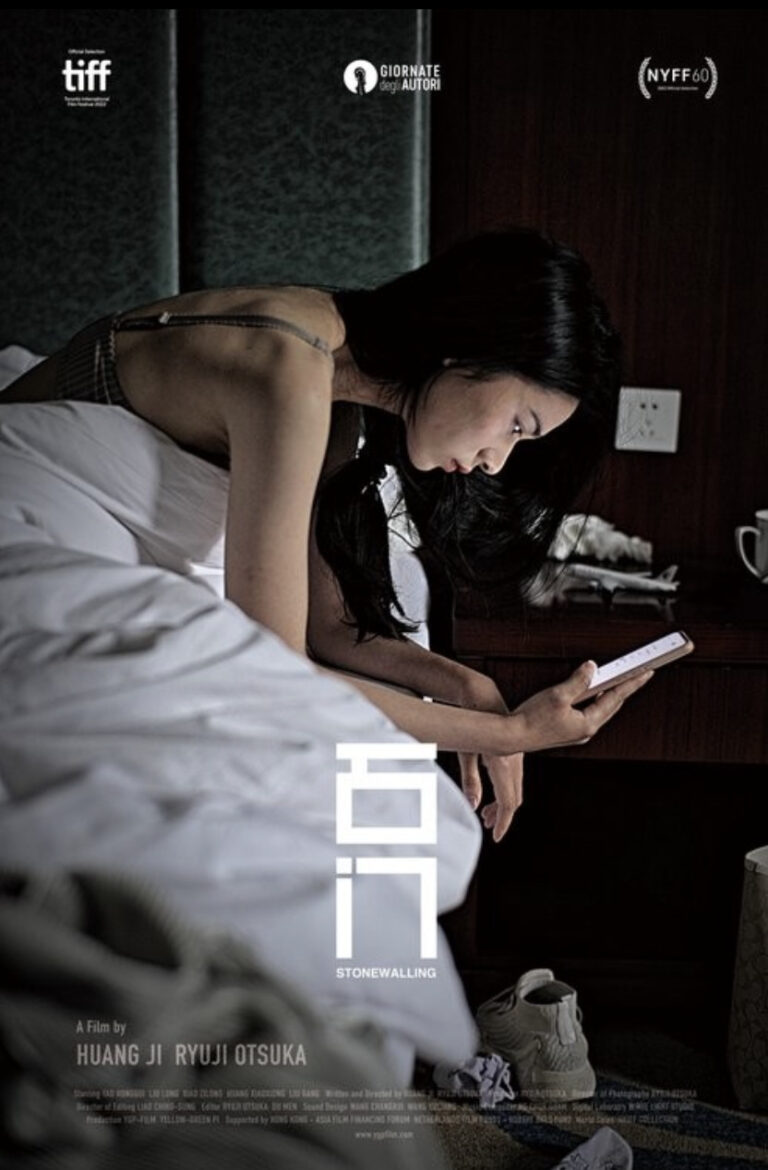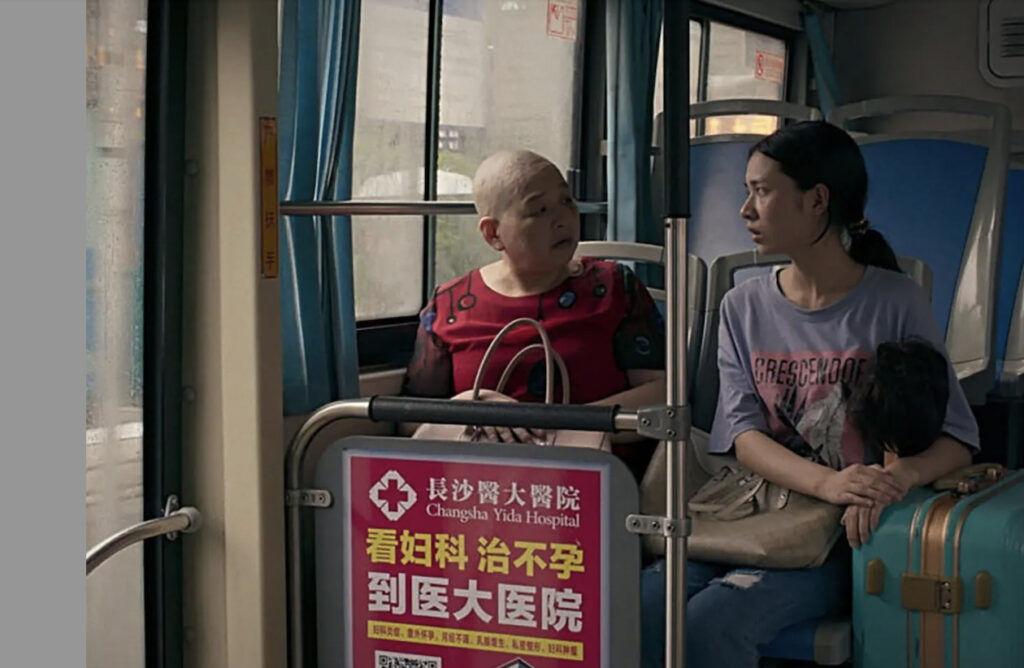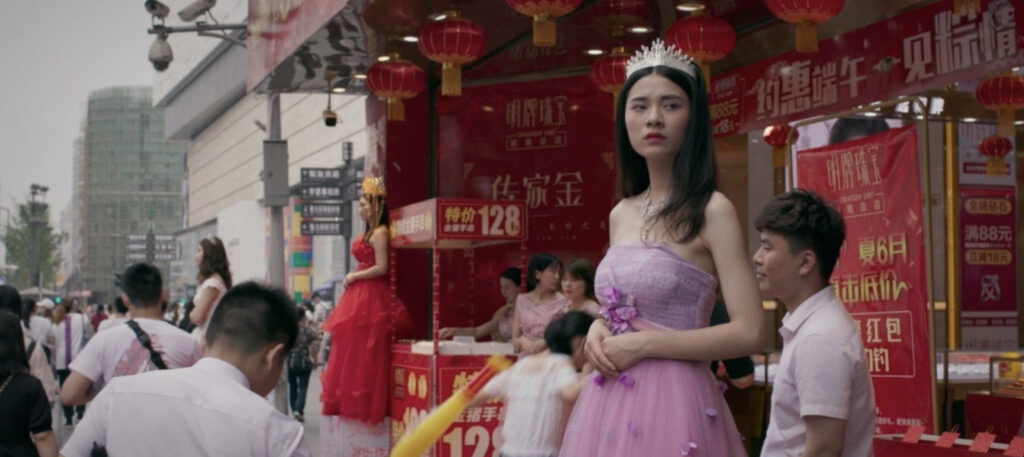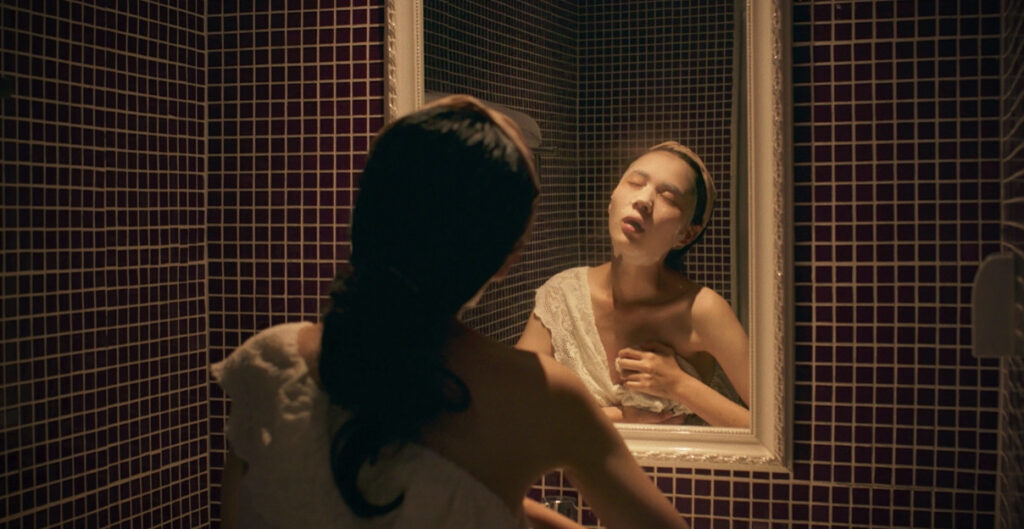

Exclusive Interview with Writers/Directors Huanh Ji and Ryuji Otsuka
Q: Otsuka-san, you are originally from Tokyo, born in Japan, and you moved to China in 2005. What was the motivation to go to China? How did you meet Huang Ji-san and start working together?
RO: I went to Beijing in 2005, it was three years before the Olympics in Beijing. At that time, I knew China’s economic development was so fast and that the changes were so vast, I wanted to experience it and observe it myself. At that time, I was already a documentary filmmaker in Japan, and brought all my equipment to China to film some things. When I was in Beijing, I went to the Beijing Film Academy. That’s where I met Huang Ji.
HJ: I had a friend who was planning to film a short and we needed a cinematographer. So I asked him to join and be the cinematographer.
RO: She was a sophomore and was only 19 years old. I saw her documentary and really liked it. At that time, I couldn’t speak Chinese. We had to communicate through writing kanji. We were curious about each other and found out that we had a lot in common, a lot of similar interests. So we decided to start making films together.
Q: This film is the last of a trilogy, the previous ones were “Egg and Stone” and “The Foolish Bird.” Otsuka-san was the producer and cinematographer for the first one, but you decided to co-direct the second and third films. How did you divide the co-directing work when you were on the set?
HJ: The first film is adapted from my own experiences.
RO: And for the second film, “The Foolish Bird”, we would interview other girls. So when we were writing the screenplay we would interview each girl together, and would write together.
HJ: I have a very direct way of feeling things, and a very intuitive way to approach things. Otsuka would help me to sort out everything and analyze and understand my intuitive findings.
RO: On the set, she is mainly the one who communicates with the actors. While she does that, I would observe and then decide how to film them, the compositions, and how the cinematography would work.
Q: The one-child policy in China was in effect between 1979~2014, and ended 9 years ago. How much do you think that policy has affected Chinese society to this day?
HJ: The effect of the one-child policy this year is even more obvious than the time when we started filming. Most families in China still have only one child, and there are more and more people who aren’t willing to marry. Therefore, the birth rate in China is dropping drastically. In 2019, a surrogate pregnancy was still something that people would not really accept. This year, people in China are starting to discuss surrogate pregnancy.
Q: What was amazing about this film is that, even though it’s a narrative film, there’s a documentary approach to some scenes which are very observational. How did you craft that approach?
RO: The most important part of this story is the 10-months’ long pregnancy. Our actress, Honggui Yao, was not really pregnant, she was just acting. But during the 10 months, she was thinking continuously about the issue of being pregnant. We were curious about how this process changes her mentally and physically about the issue. We wouldn’t be able to see all of the changes, so we decided to put the camera at a distance to observe her for 10 months. Towards the end, we actually didn’t really know how the film should end.
Q: You worked with Honggui Yao for “Egg and Stone,” “The Foolish Bird,” and this one; her performances are phenomenal. What quality do you find in her performances that kept you casting her for all three films?
HJ: There are many qualities about her; for instance, when she’s not talking, her face reflects a lot. When she was two years old, her parents left her and became migrant workers. She grew up living with her grandparents. There haven’t been many people in her life that she can actually talk with. So she’s used to expressing herself non-verbally, with, maybe, her eyes and some physical gestures. She has her own world and her own rhythm. It’s not easily changed by external influences. She has a very strong sense of herself in her own world, and is not concerned with how she’s rated by society.

Q: When this happened in the United States, the guy got blamed for getting a college student pregnant because he didn’t use a condom. But in this film, Lynn, the lead character, has to deal with the pregnancy on her own both emotionally and physically. It seems like a very Chinese cultural thing, but the topic itself is very universal.
HJ: We didn’t really think about how other countries perceive this issue, but when we were filming we took out the moral lens. Without a moral critique, what’s actually happening can be visually accurate to audiences in different countries. In a very realistic way, what the boyfriend says and decides isn’t actually problematic. He has his own reasons. So we didn’t want to design the relationship between them from a moralistic perspective.
Q: This film has been shown at the Tokyo Filmex and the Venice Film Festival. What was the reception and reaction to the film from two cultures that are different from China?
HJ: In Toronto, the audience was about half diaspora from China and half from other nationalities. I think their reactions were pretty similar, and they were moved by the film. After the screening, there was a woman from the audience who came up to us and shared her experience. She was a Chinese girl who had been taken to an orphanage by her parents when she was a small child, and the place of her birth is the same as the hometown of the actress, Honggui Yao. She was adopted by her parents from Toronto and grew up there. She has always been curious why her own biological parents gave birth to her but then gave her away to an orphanage. But she never had a chance to meet them, so her questions have never been answered. After watching “Stonewalling” she thought she could understand and imagine her biological mother.
RO: In the case of Japan, one characteristic of Japanese audiences, is that they will not talk about their own feelings. They’re very conservative. The issues brought up by “Stonewalling” aren’t really talked about by the Japanese.
Q: You worked on this trilogy over the course of about 10 years. How do you think you have grown as filmmakers over the course of those years?
HJ: I wanted to hide [laughter].
RO: In the 10 years, we were very clear about what each of us could and couldn’t do. We would help each other in the places where the other could not do something, and we each took on the jobs that we were good at. So, for the two of us, it was not like one plus one equals two; it was more like one plus one is One. That kind of feeling. In our future work, we will be able to maintain this power balance.
HJ: When I was writing “Egg and Stone,” the way I wrote male characters was based mainly on my own imagination. Then after co-directing “The Foolish Bird” and “Stonewalling,” I think I became more and more understanding and generous toward males, and in this process, my idealization of female characters has gradually decreased. I could see the limitations of women and a more realistic view of them. I realized that as a female director, I don’t have to create an active and positive cinematic female character. I just realized I talked about my own growth and not about my partner’s growth.
RO: That’s how we balance.

Check out more of Nobuhiro’s articles.
Here’s the trailer of the film.

